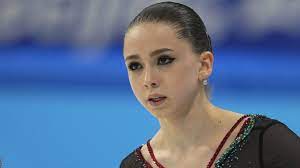Following an examination by the Russian Anti-Doping Agency (Rusada), it was determined that the 15-year-old had “no fault or negligence” for a failed test before to the 2022 Winter Olympics, when she won team gold. However, the World Anti-Doping Agency’s (Wada) appeal was upheld by the Court of Arbitration for Sport (Cas). Wada responded, “The doping of children is unforgivable.” Only after Valieva had assisted Russia in winning team gold in Beijing did word of her failing test surface. The Cas panel has ruled “the disqualification all competitive results achieved” from December 25, 2021, the date Valieva took the failed test, and the suspension has been retroactively applied to that date. The authority to deprive Russia of the gold medal, however, was stated to be “not within the scope of arbitration process and will need to be looked into by the relevant sporting organizations.”
The International Skating Union, the governing organization, applauded the Cas ruling and said that it will release a comprehensive statement regarding the consequences on Tuesday.
According to Cas, Valieva, who is currently 17 years old, did not dispute the existence of a prohibited substance and was asked to choose whether or not she should be subject to any penalties.
“Ms Valieva was not able to establish, on the balance of probabilities and on the basis of the evidence before the panel, that she had not committed the Anti-Doping Rule Violation (ADRV) intentionally,” the panel stated in its decision.
Regarding Valieva’s age at the time of the failed test, it was said that it made no difference “whether the athlete is an adult or a Protected Person”.







